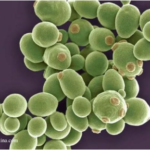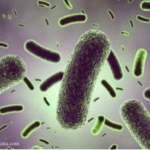The immune system of the body is constantly in a state of activity and the cytokines act as the messengers of the immune system and enable it to transduce signals.
What are cytokines?
Cytokines are defined as a group of cellular proteins that act as chemical messengers and are responsible for the regulation of a multitude of the processes of the immune system such as inflammation and immune responses. Cytokines mainly produce chemical signals which bind to the receptors of cells and induce certain responses in the affected cells which result in the immune response. They are involved in paracrine, autocrine and endocrine responses and also act as immunomodulating agents.
Common infection-related symptoms caused due to cytokines:
- Fever
- Inflammation
- Pain
The different types of cytokines:
According to the cell from which it is produced and its basic physiological function, cytokines can be classified as the following-
- Those cytokines whose primary targets are leukocytes are defined as interleukins.
- Lymphokines are defined as those cytokines that are produced by lymphocytes.
- Monokines are those cytokines that are produced only by monocytes.
- Cytokines involved in antiviral responses are defined as interferons.
- Chemokines are defined as cytokines that mediate chemotaxis between cells. Chemotaxis refers to the movement of a biological entity in response to a chemical stimulus.
- Tumour Necrosis Factors (TNF) is defined as a superfamily of transmembrane proteins responsible for apoptosis.
The cellular effects of cytokines:
Cytokines produce various effects in the cells of the immune system which include the following-
- Cytokines present in cells enable the induction of a cascade of chemical signals which alter the chemical composition of cells thereby activating the affected cells.
- Each cytokine induces activity in antigen affected cells due to the presence of cytokine-specific cell-surface receptors.
- Cytokines are also responsible for the up-regulation and down-regulation of genes and transcription factors.
- Induce the production of more cytokines in the body.
- Control and regulate their effects via feedback inhibition.
It is important to note that the activity of cytokines is considerably higher when they are bound to antibody molecules.
How do cytokines work?
The effects produced by cytokines are dependent on the extracellular abundance of the proteins and their chemical activity in the body.
Various immunological interactions:
- Pleiotropic interactions include all those cytokine related interactions which result in the production of different kinds of responses in different types of target cells.
- Synergic interactions include chemical messages produced by the cooperation of different or similar types of cytokines.
- Redundant interactions include all those cytokine induced responses that are similar in effect.
- Antagonist interactions occur when the inhibition of one cytokine inhibits another.
- Cascade induction interactions include all those cytokine interactions which result in the amplification of a single type of cytokine via a multiple-step mechanism.
The adverse effects of cytokine production:
Cytokines when produced in excess can cause a multitude of diseases in the body including Major Depressive Disorder and Alzheimer’s disease. The excessive production of T-regulatory cell related cytokines can lead to the progression of gastric cancer and also inhibit the immune response toward tumour cells. A majority of the deaths during the “Spanish Flu” can be attributed to cytokine storms which cause an extremely heightened immune response in the body. Some deaths during the COVID-19 pandemic can also be attributed to cytokine storms.
A few autoimmune diseases such as Rheumatoid arthritis can also be partly due to the production of an excessive number of cytokines.
Conclusion:
Cytokines are important regulators of the immune system and are responsible for the quick and immediate primary response of the immune system upon antigenic infection. When produced in excess, they can however be harmful to the body and lead to an unreasonably drastic immune response in the host’s body. In some cases, the body does not produce enough cytokine molecules leading to the requirement of immunity-enhancing medicines.









